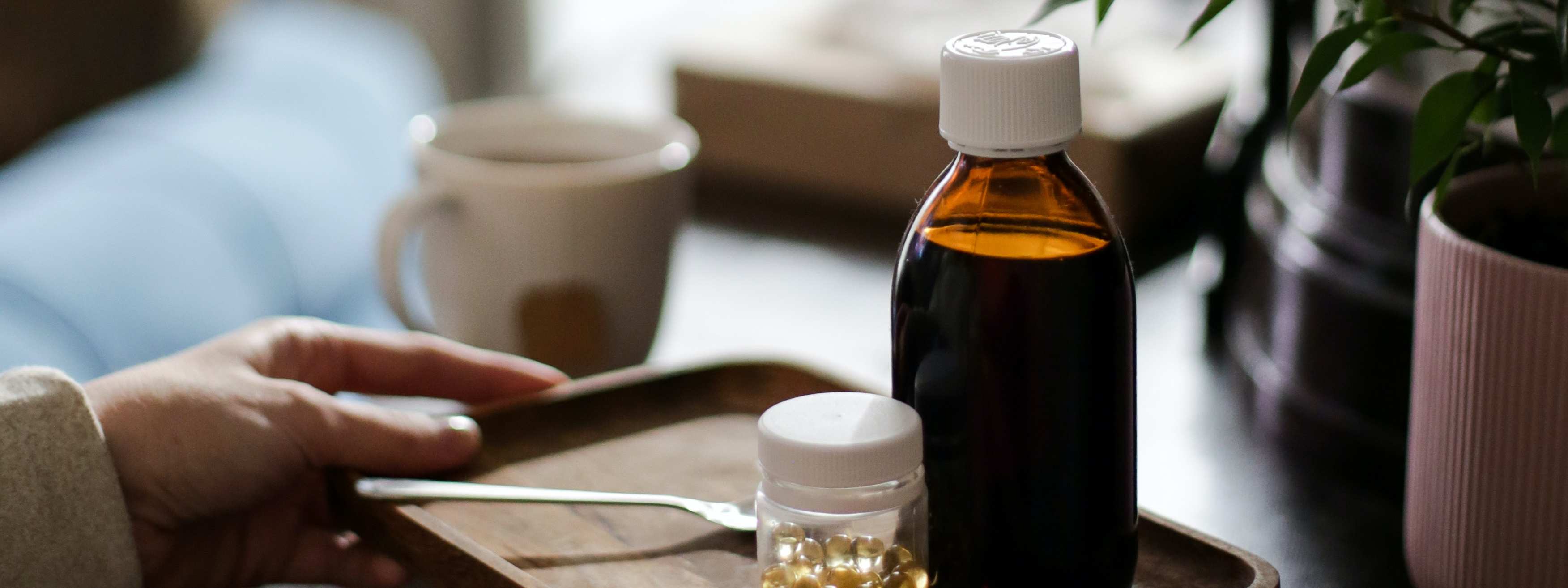- Wed, 01/04/2023 - 23:34
- How to get rid of a winter cold in Hong Kong
- by IMI health
Your best line of defence against colds and flu is your own immune system.
During winter, rapid weather changes combined with Hong Kong's dense population, air pollution and stressful living put your immune system under extra pressure,
The elderly, pregnant women, young children, and those with autoimmune conditions are most susceptible to falling ill.
Lifestyle factors also reduce the efficacy of your immune system. Nutritional imbalances, not enough sleep, drinking an excess of alcohol, taking drugs and too much partying can all inhibit our immunity.
Are antibiotics the answer?
You may think a course of antibiotics is your best defence against illness, but the truth is quite the opposite.
Antibiotics can be helpful for more severe infections (e.g. strep throat, bronchitis etc.) but taking unnecessary antibiotics can actually do more harm than good.
Misusing or overusing antibiotics weakens your immunity and causes the body to build up a resistance to the drugs, which can have a detrimental effect on your future health – when you require antibiotics to treat a severe bacterial infection like bronchitis.
But, there are steps we can all take to maximise our immune defences and minimise our need for antibiotics.
So, how do we boost our immune system?
Healthy diet
Lots and lots of fresh fruits and vegetables, and if you can buy organic, even better. Organic foods have twice the number of antioxidants as non-organic. Fruits and vegetables contain the essential vitamins and antioxidants we need for immune and overall health: A, C, D, E, zinc and iron.
Smoothies are a great way to pack in the vitamins and nutrients and nourish our immune system – but make sure you don’t overdo it with sugary fruits, as spikes in blood sugar can impair your immunity.
If you’re a picky eater, or cannot always afford organic fresh produce (which is often expensive) high quality supplements can boost your daily dose.
Exercise regularly
Regular exercise is important for our general good health; it improves cardiovascular health, lowers blood pressure, helps control body weight, and protects against a variety of diseases.
A study of 1,000 people found that staying active nearly halved the odds of catching cold viruses and made the infection less severe. [1]
Remember to take it slow and listen to your body’s cues when you are ill. A brisk walk in the fresh air may be the best type of exercise, rather than a high intensity workout.
Adequate sleep
Good sleep patterns are vital in strengthening immunity and directing energy towards recuperation.
Studies revealed that adults who sleep less than 7 hours per day were 3 times more likely to get sick.
When you’re ill, listen to your body and rest when it asks you to - as best you can – families and work often present barriers for getting the rest you need.
Stay hydrated
Aim to drink about 6 to 8 glasses of water a day.
Drinking water supports a healthy metabolism, aids digestions, and flushes out toxins. This is even more important when we are fighting a cold and at risk of dehydration, particularly if we are running a fever.
Water also helps protect us from getting ill and assists the body in maintaining adequate production of mucus; mucus protects our lungs, airways, digestive system, and other parts of our body.
Vitamin D
Research shows that more than 60% of the people in Hong Kong are Vitamin D deficient, and Vitamin D plays a vital role in our immune function.
The main source of Vitamin D is UV radiation from the summer sun, but this doesn’t help us during winter months or when we are inside buildings. The only other sure way of getting enough Vitamin D is to add a good quality supplement to our daily diet.
Probiotics
Approximately 80% of the body’s immune system resides in gastrointestinal tract. This makes our gut a major focal point to our overall health and immunity.
Probiotics nourish the environment in our gut, increasing good bacteria and protecting us from bad bacteria that could otherwise inhibit our immune function. Good bacteria stimulate and regulate immune cells for optimal health.
So eating foods rich in probiotic microorganisms, like kimchi or sauerkraut, will help keep our gut healthy and reduce the chances of getting sick. Research shows that probiotic supplements are also effective in boosting our immunity.
Proper transportation and storage matter – the temperature and humidity need to be carefully controlled for the probiotic strains to be alive. The exceptions to this rule are shelf stable formulas which have been designed to withstand room temperature storage.
Taking probiotics is particularly important during and after a course of antibiotics because while antibiotics are good at destroying the bad bacteria, they also destroy the friendly bacteria in our gut and this weakens our immunity.
Reduce stress levels
High levels of stress elevate adrenaline and cortisol, which can suppress our immune function and lower the body’s ability to fight an infection.
Activities like meditation, yoga, exercising outdoors; even if it’s a brisk walk, will help to decrease stress levels, regulate stress hormones, and keep you from being bed-ridden.
Wash your hands frequently
Scrubbing palms, the back of our hands, and between the fingers for no less than 20 seconds as this helps to stop infections from spreading.
In summary
There are some at-home measures you can take to boost your immune system in order to maximise your immunity. Additionally, you can take high quality vitamins and minerals, or probiotics in order to boost your immune system further.
If you suspect that your immune system isn’t performing at its best, a visit to a qualified naturopath can help identify any imbalances. At IMI we carry out a comprehensive patient evaluation, perform diagnostic tests to identify and treat deficiencies as well as remove obstacles to healing such as toxins, allergens, and heavy metals. Could you improve your immunity with naturopathy?
---







